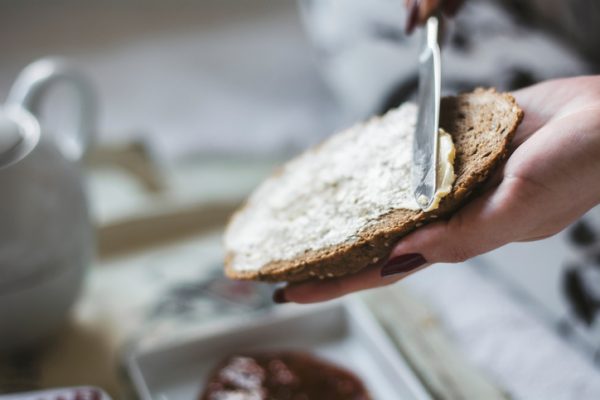MY GLUTEN AND DAIRY UNFREE DIET – DAY ONE
It isn’t always obvious that a food can be causing a problem because there are often delayed reactions. You may think you can ‘get away’ with eating a little bit, or you may miss the connection between what you ate a few days ago and how you are feeling now. This is known as the latency period, and was exploited by the tobacco industry for years as they sought to obfuscate the link between smoking and the later development of lung diseases. Keeping a food diary in which you record how you feel alongside your food intake, can be very revealing.
We are all familiar with the idea that coming off problematic foods can provoke withdrawal symptoms causing a week or so of cravings, mood swings and headaches – the reward of the elimination dieter. But what happens when you go back on to foods like gluten and dairy?
One of my concerns was that, due to the opioid effect of gluten and dairy, I might become addicted. The proteins in gluten and casein are similar to those of heroin, and the ability to break them down is compromised in many people susceptible to addictions and eating disorders. Opioid foods can be irresistible to people with low dopamine levels, as opioid derivatives can end up in the pleasure centre of the brain alleviating depression and low self-esteem, but upsetting appetite regulation and destabilising mood.
My first thought about reintroducing gluten and dairy was that it would be great to have an excuse to indulge in comfort foods that had been out of my diet for over a decade. So, on Day One I had my first slice – well, half slice – of bread. I was fortunate that my daughter had that day returned from Copenhagen with an organic, hand-made sourdough as a gift for her dad. No bromelain or additives for me. This was bread at its best. I spread some raw butter on and prepared to sink my teeth into my first slice of bread in years. But it wasn’t as I had remembered – rich and nutty with the gooey texture so beloved of bread eaters. Instead of the tang of sourdough, it tasted slightly vinegary but otherwise lacking in flavour. Instead of a chewy texture, it just felt heavy. It tasted bland and not worth the effort of chewing, and it stuck in my throat as it went down. And because of a feeling of fullness, I didn’t feel like eating much the rest of the day. Maybe our love affair with bread and our resistance to give it up could be down to its addictive qualities rather than its taste?
Having assumed that a small amount of good quality bread containing natural gluten would be unlikely to elicit a response, I forgot all about it until I realised that I had had no further bowel movements. That night I woke in the early hours, unable to get back to sleep, and feeling more restless than usual.
I intended adding in a little more dairy on Day Two. So far, so good – or was it?



